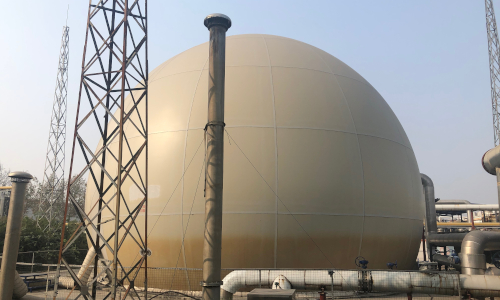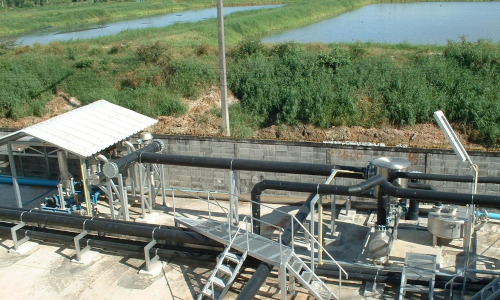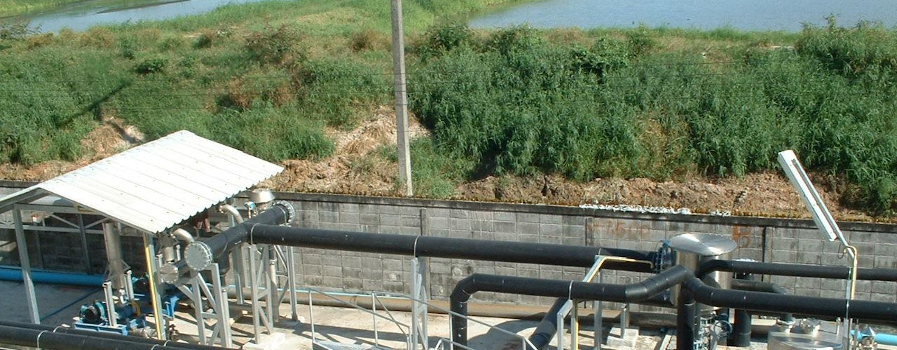Carbon offsets can never replace the work being done to reduce emissions in the Group’s value chain: through activities in our own operations, by requiring our suppliers to adopt scientifically based climate targets, and through our ambition to reduce the climate impact of the food we sell. However, they supplement those efforts and help to accelerate climate action at the global level.
ICA Gruppen’s carbon offsetting
Carbon offset projects that ICA Gruppen supports are carefully selected in cooperation with South Pole and Climate Partner to ensure that they are contributing to sustainable development and climate benefits. All projects are third-party certified to at least one independent standard. Important criteria when selecting projects have been additionality (i.e that they would not have happened without funding from a carbon offset programme), confidence that the expected climate benefits will be achieved, and assurance that the projects include local communities and make a positive contribution to other aspects of sustainable development.
ICA Gruppen has chosen carbon offset projects in countries that are part of the Group’s own supply chain: Brazil, Peru, China, Thailand and Turkey. The projects are contributing to climate action in various ways. By expanding geothermal energy, fossil energy is replaced by renewables; by conserving and planting forests, carbon dioxide from the atmosphere is sequestered; and by utilising biomass and creating biogas from waste, renewable energy is generated.
Our carbon offsetting projects
 When organic material in wastewater breaks down, methane is formed, a greenhouse gas with an even stronger impact than carbon dioxide. ICA Gruppen compensates for the climate in two projects that reduce methane emissions from wastewater and convert them into renewable energy. In the Linshu project in China, methane emissions from wastewater are captured and converted into electricity, which both prevents the climate impact that would occur if the methane were released, and contributes to increased access to renewable energy. In addition to the climate benefit, the project contributes with jobs and to the local economy.
When organic material in wastewater breaks down, methane is formed, a greenhouse gas with an even stronger impact than carbon dioxide. ICA Gruppen compensates for the climate in two projects that reduce methane emissions from wastewater and convert them into renewable energy. In the Linshu project in China, methane emissions from wastewater are captured and converted into electricity, which both prevents the climate impact that would occur if the methane were released, and contributes to increased access to renewable energy. In addition to the climate benefit, the project contributes with jobs and to the local economy.
Certification: VCS (Verified Carbon Standard)
 In Nongyai, Thailand, biogas is captured from several production plants – for starch, sweeteners and ethanol – and used to produce electricity and heat which is then used in production. Before the project started, biomass and coal were used.
In Nongyai, Thailand, biogas is captured from several production plants – for starch, sweeteners and ethanol – and used to produce electricity and heat which is then used in production. Before the project started, biomass and coal were used.
Certification: VCS (Verified Carbon Standard)
 In Tambopata in the Madre de Dios region of Peru, the population is supported in protecting the forest, while at the same time developing a sustainable source of income from the cultivation of Brazil nuts. In collaboration with the producer organization for Brazil nuts in the region, 300,000 hectares of forest are protected in the project. The 400 participants in the project receive training in both cultivation and economics, and access to tools and equipment.
In Tambopata in the Madre de Dios region of Peru, the population is supported in protecting the forest, while at the same time developing a sustainable source of income from the cultivation of Brazil nuts. In collaboration with the producer organization for Brazil nuts in the region, 300,000 hectares of forest are protected in the project. The 400 participants in the project receive training in both cultivation and economics, and access to tools and equipment.
Certification: VCS (Verified Carbon Standard)
 In the Heilongjiang province of China, corn and rice straw, and forestry by-products, are collected from local farmers and burned for energy production. By making use of biomass, emissions of methane that would have occurred if they had been burned without energy recovery or left to rot are now prevented. At the same time, the energy generated can replace fossil energy.
In the Heilongjiang province of China, corn and rice straw, and forestry by-products, are collected from local farmers and burned for energy production. By making use of biomass, emissions of methane that would have occurred if they had been burned without energy recovery or left to rot are now prevented. At the same time, the energy generated can replace fossil energy.
Certification: CDM (Clean Development Mechanism)
In China, increased consumption has led to more and more waste, which is often left in open dumps. Waste that is left in open dumps gives rise to large emissions of the greenhouse gas methane. In this project in Xingning District of Nanning City, the gas is captured and converted into energy. In this way, methane emissions are prevented while the energy produced can replace fossil energy.
Certification: VCS (Verified Carbon Standard)
In Apuí in the southern Amazon, the Evergreen project protects and preserves more than 100,000 hectares of forest a year, in an area that was previously exposed to deforestation, for example due to illegal logging. Through the project, the conditions are provided to intensify the monitoring of the area, as well as monitoring the protection of the forest and biological diversity. To create conditions for long-term protection of the forest, the project also includes training in sustainable forest management and management of forest fires.
Certification: VCS (Verified Carbon Standard)
 The project is Turkey's first private geothermal energy facility, in the Salavatli region, which has good conditions for such production. In addition to the electricity generated by the plant, which can replace energy from fossil sources, the waste heat is used in local greenhouses. The project contributes by kick-starting a potentially important sector of renewable energy production in Turkey, by setting the example for what production can look like.
The project is Turkey's first private geothermal energy facility, in the Salavatli region, which has good conditions for such production. In addition to the electricity generated by the plant, which can replace energy from fossil sources, the waste heat is used in local greenhouses. The project contributes by kick-starting a potentially important sector of renewable energy production in Turkey, by setting the example for what production can look like.
Certification: VCS (Verified Carbon Standard)

